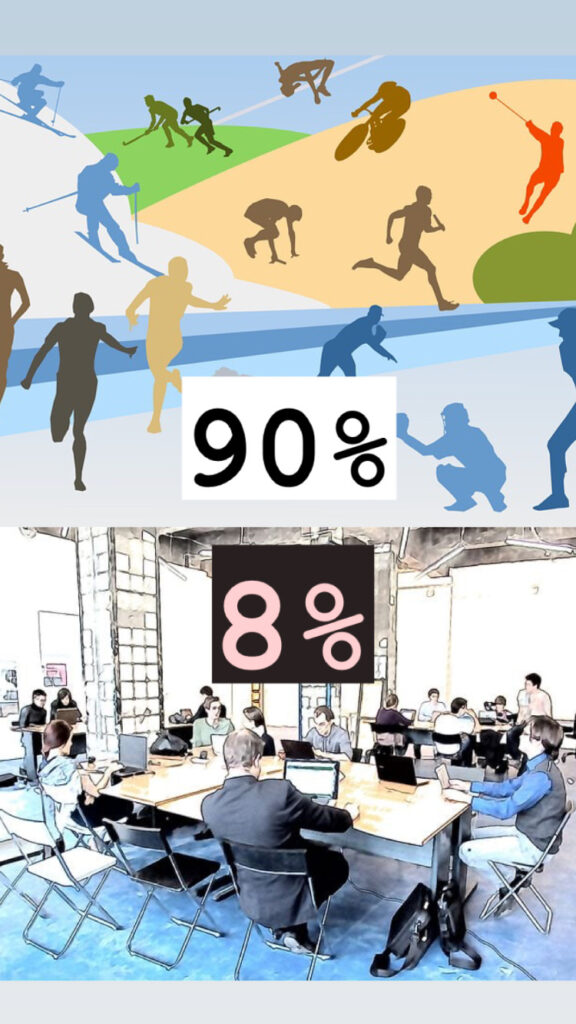Professional Athlete – They improve their chances of success by building superior body strength and cardiovascular fitness. Early morning yoga, intense swimming, pilates, sports science techniques, as well as training in techniques for their given sport, are used to create marginal gains. Coaches build individual plans to develop a program of progression and targeted improvement. Mentors help them prepare for the challenges by sharing their experiences and giving them guidance.
90% of their time is spent on developing skills and capabilities.
10% of their time is competing in events, where they need to perform at the highest level.
Mid Level & Senior Managers – Most managers develop the essential technical skills to perform in their profession early on in their career – Accountants would be an example of this. Over their careers, they will be expected to perform at a high standard in many challenging and pressurised situations. As their responsibility grows, the expected performance from multiple stakeholders rises to a new level. Enhancing and developing capabilities is the foundation stone to help them perform on a daily basis.
8% of their time will be spent on developing themselves through coaching or training programs.
92% is spent performing in dynamic, multi goal, high delivery and ever-changing environments.
Are you putting yourself in a winning position?
A recent survey showed that 18% of Finance Managers are promoted on an annual basis (this is probably a ballpark % for most other professions as well). From my own experience and recent research, this suggests most feel they have reached a ceiling or there are barriers to their advancement. Many look into the market place for similar roles or most just keeping working hard hoping their contribution becomes more visible.
My biggest leadership learning is that too many people never get the chance to utilise their skills and make a bigger contribution. Most business days are full of much needed activity and building future capability tends to take a back seat. So, the barriers I mention above are not purposely put there, it’s just that time, support and effective processes doesn’t always exist to help in the development of individuals.
I’m now trying to address this situation through an objective approach that helps people assess their current capabilities.
Using a very simple & effective technique, I can produce results that looks at capability strengths, the underlying skills that drive effective capabilities and how these support their technical and professional skills.
The focus is to help them understand their capabilities baseline, so it becomes more clear on how they can move forward and build more future opportunities.
The art is to not only produce independent insights, but help them turn their workplace into a development environment where building capability can run alongside any of their internal goals.
The second cohort in my pilot scheme (GCCBM Assessment Model) finishes in Mid-March. I will be sharing more information about the model and my approach to helping people advance during March.

